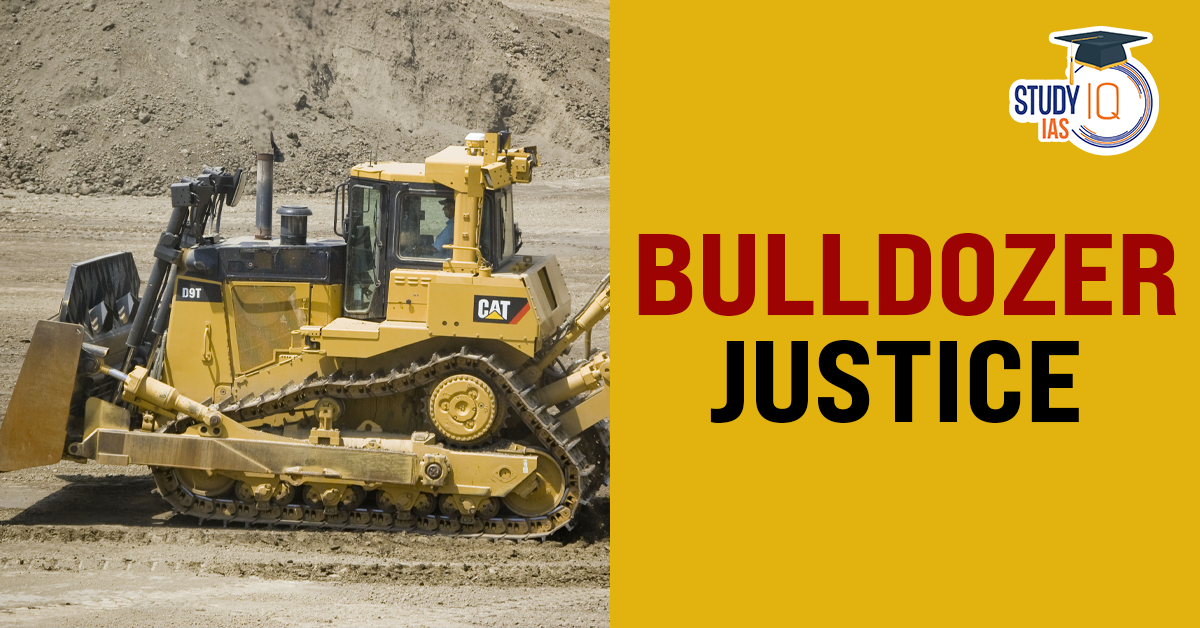Table of Contents
Context
The Supreme Court has laid down a series of guidelines to ensure that due process is followed for demolishing the properties of citizens accused of crimes exercising its powers under Article 142 of the Constitution.
About Bulldozer Justice
- It refers to the instant justice mechanism that is propagated by the government of various states to punish the alleged rioters and protestors by razing down their houses, stalls or any construction with the use of JCB.
|
Article -142 |
| It gives the Supreme Court of India the power to make orders and decrees to ensure “complete justice” in any case before it. |
Supreme Court Guidelines on Demolition Procedures
- Mandatory Notice Period:
- Authorities must issue a minimum 15-day notice to the property owner or occupier before demolition.
- The notice must detail reasons for the demolition and schedule a “personal hearing” to allow the property owner an opportunity to contest.
- Hearing and Final Order:
- A hearing must be conducted by authorities, and all proceedings should be documented.
- The final order must include the owner’s arguments, the reasons for demolition and clarify if a full or partial demolition is required.
- The Court stressed that demolition should be a last resort, to be pursued only when absolutely necessary.
- Post-Order Process:
- If a final demolition order is issued, a 15-day period must be granted to allow the owner time to either remove the structure or appeal to the court.
- Authorities are required to record a video of the demolition process and prepare a report detailing the inspection, personnel involved, and the demolition.


 World Summit on Disaster Management (WSD...
World Summit on Disaster Management (WSD...
 Domestic Systemically Important Banks (D...
Domestic Systemically Important Banks (D...
 The Missing Link in India’s Critical M...
The Missing Link in India’s Critical M...

























